Are you wondering how to teach writing to younger students or start writing workshop in the preschool classroom? This is the post for you! It will give you some simple ideas for structuring your writing workshop time and how to plan your week.
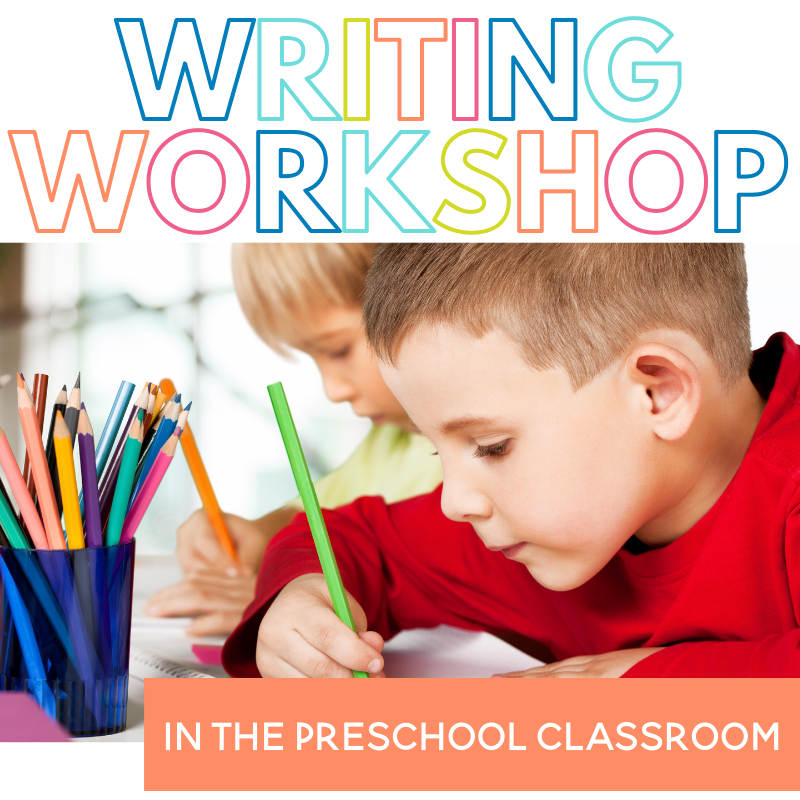
Raise your hand if you teach reading and writing! ✋ Class books are one of my favorite tools for writing workshop time. They really help preschool and Kindergarten students get excited about learning to read and write. I’ve put together a set of my favorite printable class books totally free for you! These class books can be used throughout the school year and focus on skills like letter and number recognition, sight words, environmental print, and more! I know you’ll love writing and creating these books with your students!
It’s no secret that children develop at different rates. Most babies can walk anywhere between 9 and 18 months and it’s normal! For some reason, we get uncomfortable with ranges when it comes to academic skills, but it’s totally normal too! Some preschool students will be ready for more explicit writing instruction and others won’t be! That’s normal and totally okay! This post is designed to give you some ideas for starting writing workshop with your preschool students in a way that they will ALL be successful!
This post may contain affiliate links. For more information, you can read my disclosure statement here.
Preschool Writing
I think it’s important to start with developmentally appropriate expectations of how writing in the preschool classroom should look. If you are interested in learning more about this topic, I highly recommend this book. Writing is a form of communication and follows a progression of skills. In preschool, it’s important to help students be able to tell their stories by talking, then move into drawing and writing.
You definitely want to start teaching writing with realistic expectations. Here are a few key things to remember with preschoolers:
- Focus on the process of writing before stressing about the mechanics. Even as an adult writer, I will stress myself out trying to write something if I get too focused on the mechanics of it! Do I need a comma here? Is that how you spell that word? Our students feel the same way when we try to make them think about all the rules of writing and spelling. Let them tell their story, the rest will come.
- Writing should be a positive experience. Students should feel excited to be able to communicate in this new way, not stressed about making the letters perfect or spelling everything right.
- Focus on language and telling a story, then add pictures and words last!
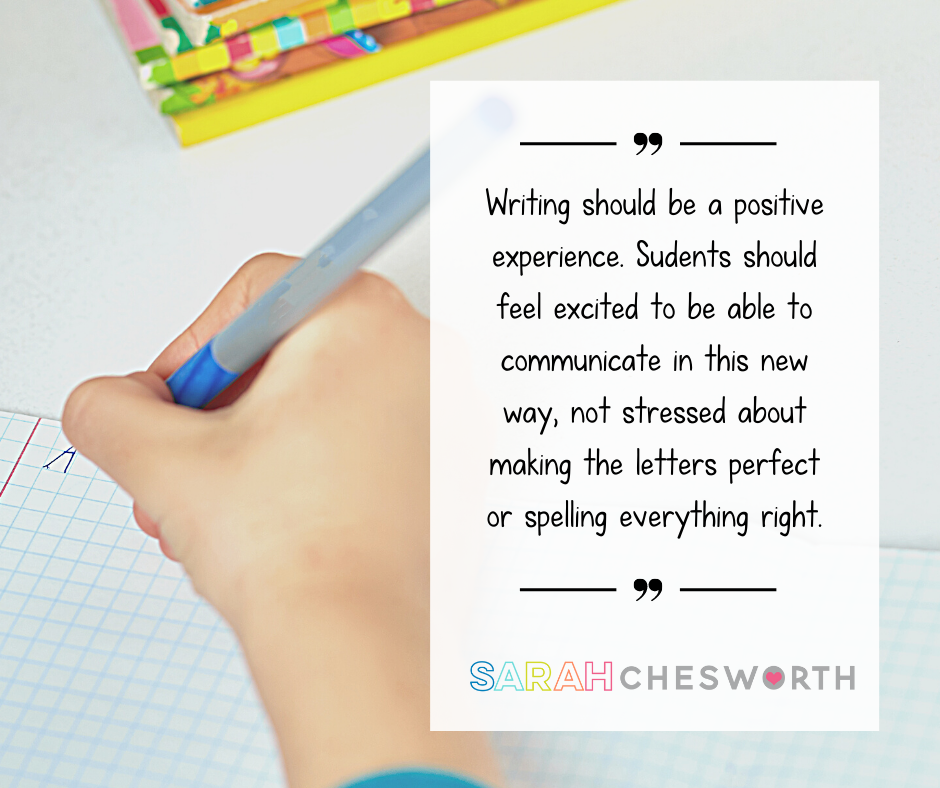
What is writing workshop?
Writing workshop is a framework for how to schedule your writing block time that Lucy Calkins developed. Many teachers have used this basic framework to structure their writing time. Usually writing workshop in an elementary classroom looks something like this:
- A Mini Lesson: The teacher will choose a writing skill or concept to briefly teach with students.
- Independent Writing Time: Students will write independently while the teacher walks around the room conferencing with students
- Sharing Time: At the end of the writing workshop, students will share their work with the class.
In the preschool classroom, we want to make writing workshop as simple as possible. I find using writing journals and prompts to be very helpful! If you want to read more about how to set up journals in the preschool classroom, read this post: Getting Started with Preschool Writing Journals.
Preschool Writing Workshop
For this age group, I find it really unrealistic to try and do all parts of the writing workshop during the writing block every day. I also find it really hard to not give students any direction to go with their writing. Instead, think about spreading these parts of the writing workshop over a week and helping your students think of writing ideas with an open-ended prompt. I want to show you how easy planning a week of writing workshop for your preschool students can be! Let me walk you through a week of writing workshop. For this example, I am using a journal prompt from my Preschool Writing Journal Prompts.
Monday Writing Workshop
Read a nonfiction book about pumpkins. Here are a few of my favorites:
Reading a book is a great introduction to any writing activity because it gives all students some level of background knowledge and builds vocabulary for writing. I would consider this the first part of the mini-lesson. Even if students are writing about a personal experience, it can still be helpful to try and find a book to go with it!
Tuesday Writing Workshop
Briefly review the book you read the day before, then introduce your writing prompt. I like broad prompts because all writers can feel successful and students can take it in any direction. For this example, the prompt is simply to draw or write about pumpkins.
From here you can decide what skill to teach in your mini-lesson based on the needs of your students. It can be as simple as drawing a picture to match an idea. You could model writing down a complete idea or simple sentence or even turn it into an interactive writing piece! Modeling is huge, especially with preschool writers so model some of the writing concepts you are working on.
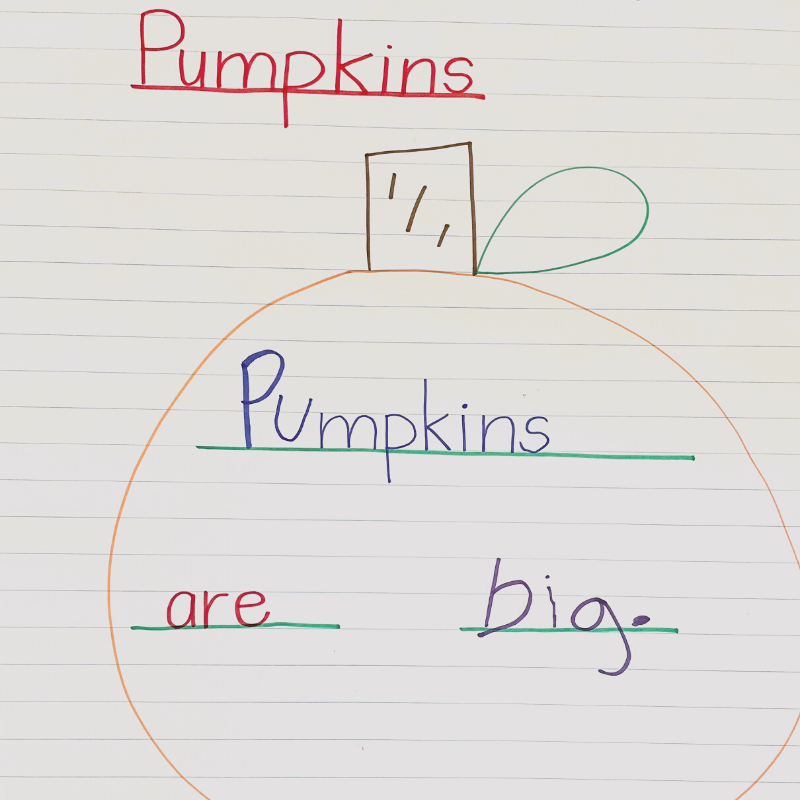
You can decide what your students need, but don’t forget how short preschool attention spans are. Choose something simple to write to model! For this example, my mini-lesson was how to stretch out a word and write the sounds heard. Students helped write the letters to match the sounds we heard in the word big.
Wednesday Writing Workshop
Start today by revisiting your class writing piece from yesterday. Reread it together and do a quick review of the concept. An extra sentence could be added to it as well or even a picture!
After that, help your students prepare to write independently. At the beginning of the year (especially) it may help to set your students up for their writing the next day. For example, you may have students write their names at the top of the writing page or glue the prompt in their writing journal and add the date.
I highly recommend using a date stamp. Don’t use that precious writing energy having your students stress about writing the date at the beginning of the year. Writing is a great form of documentation and a great way to show progress throughout the school year.
Thursday Writing Workshop
Finally, today is the day that your students will move into the independent writing time section of the writing workshop. This is going to look different for every student. Remind students of the prompt and revisit your class writing example. I recommend leaving the classroom writing somewhere students can see it for support if needed. Here are a few ways your students may respond to the prompt:
- One student may tell you something about a pumpkin and you can write that down for them.
- One student may draw an orange scribble.
- One student may draw a pumpkin.
- One student may draw a pumpkin and write a P to go with it.
- One student may copy the sentence you wrote as a class.
- Another student may be able to generate and write a complete sentence about pumpkins.
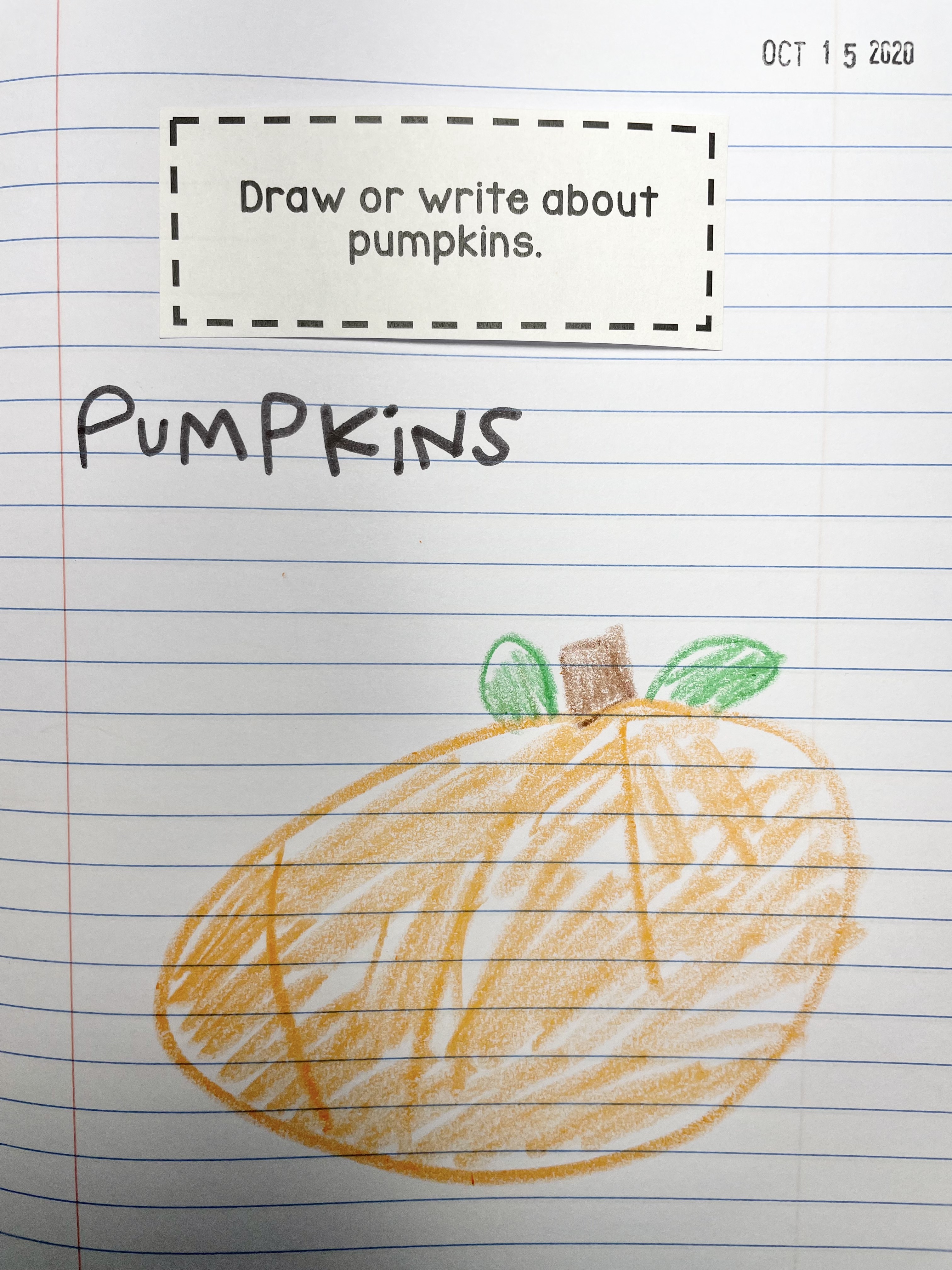
All of this is WRITING and should be celebrated! You will see so much progress with your students throughout the year and you are helping them have a strong foundation for reading and writing.
Friday Writing Workshop
Today students can move into the last part of the writing workshop and share their writing! This may look a little different in every classroom and at different points in the school year. Writing can be shared in a whole group setting, a small group setting or student to student. The important thing is that students feel ownership and pride in their work and learn from their classmates.
It may be helpful to give students sentence stems to use when they are sharing their work like “I wrote…” or “I drew…” Sharing writing is a great opportunity for practicing listening and speaking skills as well.
Writing Workshop Journal Prompts
As the school year progresses, you may be able to do more than one journal prompt a week, but start slow! If you are looking for journal prompts to last you the entire school year, be sure to check out Preschool Writing Journal Prompts. These prompts are broken down into ten different themes that many preschool curriculums follow.
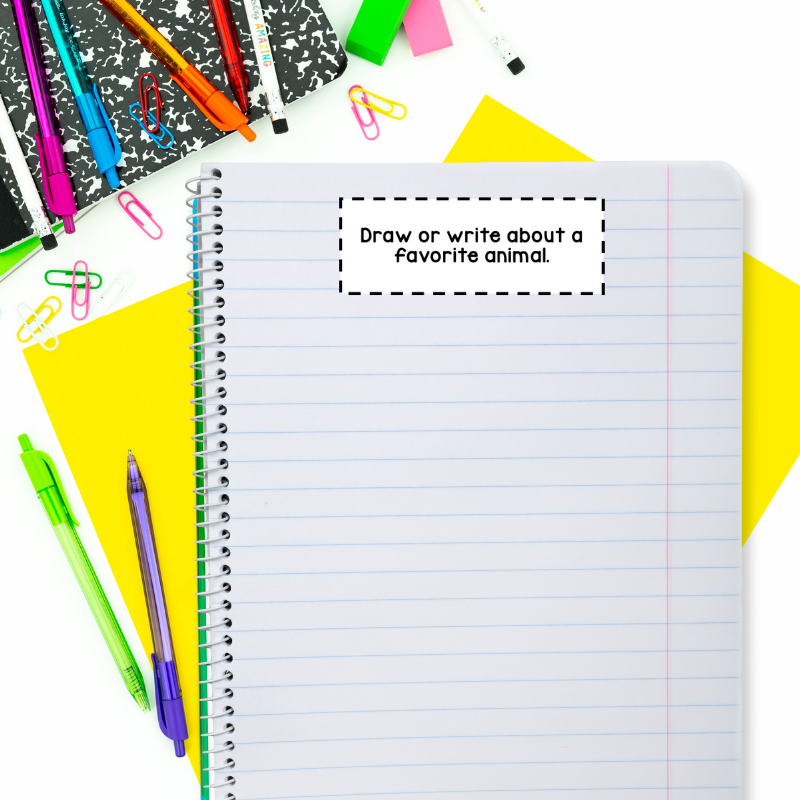
More Tips and Resources for Writing Workshop in Preschool
How to Make Meaningful Class Books for Preschoolers
Environmental Print in the Preschool Classroom
Getting Started with Preschool Writing Journals
Don’t forget to download your set of free printable class books and start writing and reading with your students! They are focused on the skills preschoolers and Kindergarten students need to know like numbers and letter recognition!
I hope this post helped you feel prepared to introduce writing workshop in your preschool classroom!

